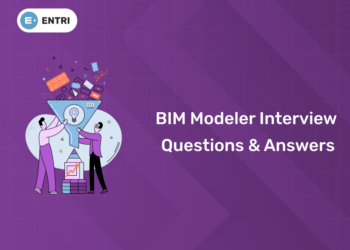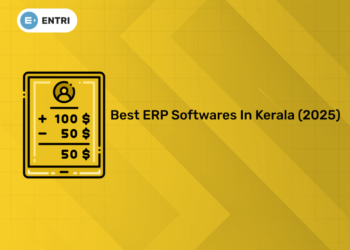Table of Contents
As electrical engineering is a crucial branch of engineering, taking an online course in this field can lead to a well-paying job. Several electrical engineering certification courses are available online and in India for professionals, ranging from specialized certification programs for electrical engineers to courses in electronics and communication engineering, as well as electrical and electronics engineering.If you want to enhance your skills and secure a high-paying job, enrolling in one of the Best 5 Certification Courses for Electrical Engineers can be a game-changer.
Electrical engineering is the study of energy that powers our world. It involves the study of electrical appliances and is closely related to the fields of electronics, computers, communication, and mechanics. Enrolling in top online electrical engineering certification courses and earning industry-recognized certifications in India are essential steps toward pursuing a successful career in electrical engineering.
In this article we will discuss about best 5 certification courses for Electrical Engineers.
What is Electrical Engineer?
Electrical engineering is a branch of engineering that studies, designs, and implements electrically powered electronic devices, equipment, and systems. There are numerous subfields within electrical engineering, such as computer engineering, electronics, radio-frequency engineering, power engineering, systems engineering, instrumentation, optics, and photonics. An academic degree in electrical engineering or electronic engineering is usually awarded for pursuit of this field. With the top Electrical Engineer certification courses, you can get your electrical engineering career off to a great start.
Best 5 certification courses for Electrical Engineers
Electrical engineers can demonstrate their professional abilities by pursuing these typical certifications:
- MEP Design Course
- Supervisory Control and Data Acquisition (SCADA) certification
- Programmable Logic Controller (PLC) certification
- Engineer In Training Certification (EIT)
- Project Management Professional (PMP)
MEP Design Course
MEP design, short for Mechanical, Electrical, and Plumbing design, is an essential component of building engineering and construction. Entri Elevate provides a comprehensive MEP Design Course that covers all aspects of mechanical, electrical, and plumbing engineering design.
The course is designed to teach students the fundamental concepts and skills necessary to design efficient and cost-effective building systems. It encompasses the planning, design, and integration of mechanical, electrical, and plumbing systems within a building or infrastructure. The course includes detailed lessons on HVAC systems, electrical systems, plumbing systems, and fire protection systems. Besides, the course covers the latest design software and tools used in the MEP industry.
MEP Design Course by Entri provides a structured curriculum, interactive learning materials, quizzes, assignments, and possibly hands-on projects to ensure a comprehensive understanding of MEP design principles and practices. The course is delivered through video lectures, live sessions, and study groups for discussions and doubt clarification. Upon completion of the course, students will have a solid understanding of MEP design principles and be well-prepared for a career in this field.
Supervisory Control and Data Acquisition (SCADA) certification
SCADA stands for supervisory control and data acquisition. SCADA knowledge may be beneficial for electrical engineers who intend to work in the manufacturing or energy sectors. It is a tool for automation in production that is becoming more and more significant. Engineers can learn the principles of SCADA from a number of online courses that offer certification upon completion.
Programmable Logic Controller (PLC) certification
Electrical engineers can demonstrate their proficiency with electronic automation technologies with a PLC programming certification. Engineers can take a lot of PLC courses online or in person, and many of them offer certification upon completion.
Selecting a course based on the PLC you are most likely to use at work can be beneficial, as many courses focus on teaching a specific PLC platform. For instance, you can enrol in a certification programme offered by Allen Bradley or by a third party such as the Engineering Institute of Technology (EIT) if you plan to work with the Allen Bradley series of PLCs.
Elevate your career with our comprehensive MEP Course! Get Free Demo Here!
Engineer In Training Certification (EIT)
The Engineer In Training Certification, or EIT Certification, is merely a document, a number, provided by the individual’s state engineering board after passing the Engineer In Training Exam. The first of two tests you will take in order to earn your Professional Engineering Licence (PE) is the Engineer in Training Exam (EIT Exam).
The National Council of Examiners for Engineering and Surveying (NCEES) created and administers this exam, which is also known as the Fundamentals of Engineering exam (FE Exam) in some states and other countries outside of the US. All qualifying students can take the FE Exam during four separate examination sessions throughout the year.
Project Management Professional (PMP)
The PMP designation after your name indicates to existing and potential employers that you have demonstrated a sound foundation of knowledge from which to practise project management competently.You must first fulfil particular educational and project management experience requirements, as well as pledge to uphold a code of professional behaviour, in order to be eligible for a PMP Credential.
The last step in becoming a PMP is to pass a demanding multiple-choice exam that measures your ability to apply project management knowledge in the following six domains: professional and social responsibility, project planning, project execution, monitoring and controlling, project closing, and project initiation. This computer-based test is given to people all over the world with the assistance of ten translation tools.
Autodesk AutoCAD
Professionals in a variety of industries use AutoCAD, a computer-aided design programme, to create models, blueprints, and other designs. This accreditation might serve as proof of your expertise on this significant platform. Autodesk offers three levels of certification: Autodesk Certified Expert, Autodesk Certified Professional, and Autodesk Certified Associate. Candidates must pass a proctored exam and meet specific requirements for practical AutoCAD experience in order to earn these credentials.
Start a Rewarding Career in MEP! Free Demo Classes Here!
Master MEP Design with Industry-Leading Training!
Gain in-depth knowledge of Mechanical, Electrical, and Plumbing (MEP) Design with expert-led courses. Learn HVAC, fire safety, sustainable building strategies, and BIM applications to excel in the construction industry.
Know MoreEligibility Criteria for Electrical Engineer Courses
The following meet the requirements for admission to the electrical certificate programme, electrical engineering certificates, and the finest electrical engineering course:
- In order to be admitted to the B.E., B.Sc., BTech, or Bachelor of Applied Science programme in electrical engineering, applicants must have earned at least 50% of their points in class 12 science (physics, chemistry, math, and biology) from an accredited board.
- Candidates must have a bachelor’s degree in electrical engineering from an accredited college or university with a minimum cumulative GPA of 60% in order to be considered for ME, MSc, or MTech programmes in the field.
- Applicants seeking admission to BTech/BE/MTech/ME programmes in electrical engineering must take entrance examinations at the national, state, and institutional levels, including BITSAT, WBJEE, JEE Main, JEE Advanced, IPU CET, MHT CET, and GATE.
Skills Required for Electrical Engineering
It is advised to have the following abilities in order to enroll in online electrical engineering courses leading to certifications and diplomas:
- Attentive
- Critical Thinking
- Problem-Solving
- Good communication skills
- Quantitative Aptitude
Career Options in Electrical Engineer
Nearly every industry is built on the foundation of electrical engineering. After finishing EEE engineering programmes, online basic electrical engineering courses, electronics and communications engineering programmes, and certificate courses for electrical engineers, one can pursue a wide range of professional opportunities. It is possible to secure a prosperous profession in both public and private institutions.
Following completion of online electrical engineering degree programmes and certificate courses, you can work for businesses that specialize in product design, development, sales, consumer electronics, transportation, system management, manufacturing, chemical, defence, and pharmaceutical industries.
Following electrical engineering and electrical certification courses, you can find the following employment profiles:
- Electrical Engineer
- Electronics Engineer
- Power Engineer
- Telecom Engineer
- Electrical Design Engineer
- Nuclear Engineer
Salary Trends for Electrical Engineers
An individual’s qualifications, skill set, type of work, and experience level all influence the typical income of a professional who has completed online electrical engineering courses and online electrical courses with certifications in India. The average annual compensation for an electrical engineer in India is Rs 391,166, according to PayScale.
Salary as per experience
| Experience | Average Base Pay (Annually) |
| Less than 1 year | Rs 301,970 |
| 1-4 years | Rs 306,117 |
| 5-9 years | Rs 493,825 |
| 10-19 years | Rs 750,408 |
| 20 years & above | Rs 917,617 |
Electrical Engineering’s Scope
In today’s digital environment, electrical engineering has a vast application. Electrical technology plays a major role in the design, production, and upkeep of goods, services, and information systems. Computer engineering, power engineering, instrumentation and control engineering, microelectronics, and nanoelectronics are only a few of the numerous specific subfields in this area. Due to the speed at which technology is developing, there will probably be a huge increase in the need for electrical and electronics experts across all industries.
Once you have finished your online electrical engineering degree programmes, electrical engineering certificate programmes, and free electrical engineering courses, you can work for the government in a variety of industries, including manufacturing, metro rails, power plants, power distribution, telecom, railroads, and aviation. You might be assigned to SAIL, ONGC, DRDO, or any other government agency. Electrical engineering covers a far wider range of topics and will only get further as technology advances.
The MEP Course has been carefully crafted to provide you with the knowledge necessary to convert engineering concepts into accurate and clear drawings. You will be essential to ensuring that the mechanical, electrical, and plumbing systems in buildings and structures are seamlessly coordinated as an MEP draftsman. This course will help you succeed in this in-demand career by guiding you through the principles, industry best practises, and software tools.
|
Engineering Upskilling Courses
|
| MEP Course |
| BIM Course |
| Quantity Surveyor Course |
| Structural Design Course |
| MEP QS Course |
Master MEP Design with Industry-Leading Training!
Gain in-depth knowledge of Mechanical, Electrical, and Plumbing (MEP) Design with expert-led courses. Learn HVAC, fire safety, sustainable building strategies, and BIM applications to excel in the construction industry.
Know MoreFrequently Asked Questions
Q1. What are the best certifications for electrical engineers?
Ans: The Project Management Professional, Certified Systems Engineer Professional, and Engineering in Training certificates are among the best for electrical engineers. The Professional Engineer, Certified Energy Manager, and Programmable Logic Controller certificates are additional popular ones.
Q2. What skills do electrical engineers need?
Ans: To tackle challenging issues in the industry, electrical engineers require a strong foundation in maths, physics, and critical thinking. Project management, MATLAB, AutoCad, and engineering design are additional competencies required of professional electrical engineers.
Q3. Do electrical engineers need to know how to code?
Ans: Yes, coding knowledge is essential for electrical engineers. To programme microcontrollers, develop and write test firmware, and configure registers, they must be fluent in C and C++. It also relies on what position you play specifically in the field of electrical engineering. Power engineers, for instance, do not require coding knowledge.
Q4. How do you become an electrical engineer?
Ans: An approved bachelor’s degree is required to work as an electrical engineer. In order to become a licenced electrical engineer, one must also pass the Fundamentals of Engineering (FE) exam.












